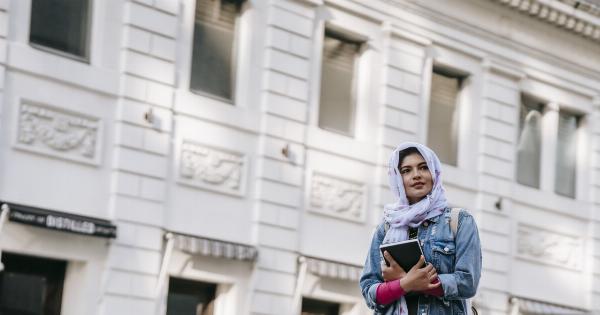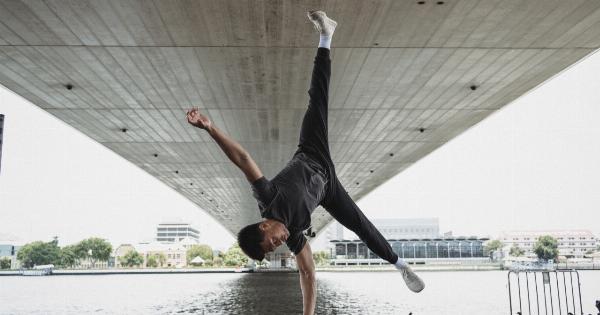Aging is an inevitable part of life, and with it comes a host of changes physically, emotionally, and mentally. However, it is possible to defy the common expectations of aging and maintain a high quality of life well into our golden years.
One effective way to do this is through the practice of martial arts. Martial arts not only offer physical fitness benefits but also enhance mental well-being, improve self-confidence, and help develop a sense of discipline.
In this article, we explore how martial arts can help us age gracefully and discuss the various ways in which it can positively impact different aspects of our lives.
1. Physical Fitness
One of the primary concerns while aging is maintaining good physical health. Regular exercise is known to have a multitude of benefits for individuals of all age groups.
Martial arts provide a holistic approach to physical fitness by incorporating various components such as cardio, strength training, flexibility, and balance.
Practicing martial arts involves dynamic movements that engage the entire body. The continuous practice of martial arts helps improve cardiovascular endurance, strengthening the heart and improving blood circulation.
Increased heart rate during training helps burn calories, leading to weight loss and better weight management.
Martial arts also focus on improving strength and building lean muscle mass. These activities require the use of several muscle groups simultaneously, promoting overall muscular development and added stability for daily activities.
Flexibility is another crucial aspect that tends to decline with age. The stretching exercises and movements in martial arts classes help improve flexibility over time.
Increased flexibility leads to improved joint health, better range of motion, and reduced risk of injuries.
Finally, martial arts training emphasizes balance and coordination. The practice of various stances, kicks, and strikes helps improve proprioception, which is the body’s ability to sense its position in space.
Enhanced balance and coordination decrease the risk of falls and enhance overall stability.
2. Mental Well-being
As we age, it is essential to focus on mental well-being in addition to physical fitness. Martial arts provide ample opportunities to enhance mental health and overall well-being.
One of the notable benefits of martial arts is stress reduction. Engaging in physical activity releases endorphins, also known as “feel-good” hormones.
The endorphin release during martial arts training helps combat stress, anxiety, and depression. Regular participation in martial arts can promote a positive mood and reduce symptoms of chronic stress.
Martial arts training also involves practicing mindfulness. The focus required during training sessions helps develop concentration and presence of mind.
Mindfulness exercises, such as controlled breathing and meditation, are often integrated into martial arts practice, further promoting mental clarity and relaxation.
Furthermore, martial arts foster discipline and perseverance. Mastering martial arts techniques requires consistent practice, patience, and dedication. These attributes translate into other areas of life, enhancing discipline, focus, and determination.
Social interaction and camaraderie are additional mental health benefits of practicing martial arts. Joining a martial arts class provides an opportunity to connect with like-minded individuals, creating a sense of community and support.
The social aspect of martial arts can combat feelings of isolation and help foster new relationships, especially important as we age.
3. Self-Confidence
Aging often brings changes in self-perception and confidence levels. Martial arts can play a significant role in building and boosting self-confidence as we navigate the aging process.
Regular practice of martial arts instills a sense of accomplishment and self-belief. As individuals progress through different ranks and earn martial arts belts, they develop confidence in their abilities and increased self-esteem.
Learning self-defense techniques also empowers individuals, providing a sense of security and confidence in one’s ability to protect oneself.
Martial arts training helps individuals develop situational awareness, quick reflexes, and the ability to respond effectively in challenging situations.
Furthermore, the constant physical and mental challenges present in martial arts training help individuals recognize their potential and break through self-imposed limitations.
Overcoming obstacles and pushing boundaries leads to increased self-confidence and personal growth.
4. Discipline and Focus
Discipline and focus are crucial for achieving personal goals and maintaining a sense of purpose as we age. Martial arts training ingrains discipline and focus in individuals, positively impacting various aspects of life.
Martial arts require consistent practice and adherence to training schedules. Regularly attending martial arts classes develops discipline by instilling a routine and commitment to training.
This discipline extends beyond the training studio into other areas of life, such as work and personal relationships.
During martial arts training, participants need to maintain focus and be present in the moment. This ability to concentrate on the task at hand carries over to daily life, improving focus and productivity in various activities.
Moreover, martial arts emphasize setting and achieving goals. Instructors often set clear benchmarks for progression, such as belt promotions. Working towards these goals fosters discipline, perseverance, and a strong work ethic.
5. Healthy Aging and Longevity
Martial arts can significantly contribute to healthy aging and longevity. The combination of physical fitness, mental well-being, self-confidence, and discipline creates an environment conducive to aging gracefully.
Regular physical activity through martial arts training helps maintain muscle tone, bone density, and joint health.
This translates into better overall mobility and reduced risk of chronic health conditions associated with aging, such as osteoporosis and arthritis.
Improved cardiovascular health due to regular martial arts participation reduces the risk of heart disease and promotes longevity.
The holistic nature of martial arts training also helps balance hormones, leading to improved sleep patterns and overall hormonal health.
The mental and emotional benefits of martial arts contribute to better cognitive function and memory retention as we age. The focus, concentration, and mental exercises involved in martial arts help keep the mind sharp and active.
In addition, the self-defense skills acquired through martial arts training provide a sense of security and confidence, enabling individuals to feel safer as they navigate their day-to-day lives, even in older age.
Conclusion
In conclusion, martial arts offer a wide range of benefits for individuals looking to age gracefully. From physical fitness to mental well-being, self-confidence to discipline, martial arts provide a holistic approach to healthy aging.
The mental and physical challenges present in martial arts training help individuals overcome obstacles, build resilience, and break through self-imposed limitations. Furthermore, the social aspect of martial arts fosters a sense of community and belonging, combating feelings of isolation and loneliness often experienced as we age.
Incorporating martial arts into our lives can significantly improve our quality of life and help us age gracefully.































